 On May 4, John Tedesco led breakout sessions at Groove Capital’s Angel Fest 2023 in Minneapolis on Why Founders Need Mentors. John has been a MESA Mentor since 2010 and serves as a member of the MESA Executive Committee. In these well-attended sessions, John covered:
On May 4, John Tedesco led breakout sessions at Groove Capital’s Angel Fest 2023 in Minneapolis on Why Founders Need Mentors. John has been a MESA Mentor since 2010 and serves as a member of the MESA Executive Committee. In these well-attended sessions, John covered:
Why have a mentor?
Mentors provide context, advice and accountability for founders and CEOs of startups.
Entrepreneurs are deep in the trenches of their business, so much so that they lose sight of the forest through the trees. Mentors bring an important external perspective to the table, both to put challenges in their proper context and help entrepreneurs see the progress that may not be immediately evident.
Good mentors provide advice based on relevant experiences in similar situations. Many times, this advice helps entrepreneurs narrow their areas of focus and concentrate their energies on a singular goal or problem.
Finally, mentors serve as an accountable party to the founder. Like a ‘gym buddy’, knowing that your mentor will ask you what progress you made on a particular item at your next session will increase the odds of progress. It also helps founders remain focused when they return to the whirlwind that is the day-to-day life of an entrepreneur.
What should you look for in a mentor?
A good mentor ‘leans in’, provides relevant experience and is clear and direct.
Like any healthy relationship, a good mentor/mentee relationship requires deep mutual respect. It’s not just the mentee respecting the accomplishments of the mentor, but also the mentor respecting the passion, vision, and work ethic of the mentee. Look for mentors that will ‘lean in’ to the relationship.
Relevant experience is also an important asset that a mentor should bring to the relationship. The more the mentor understands the industry and phase of growth of the mentee’s business, the more valuable and actionable the advice and perspective will be.
The best mentors are straight talkers. The time spent between mentor and mentee is limited and the conversations should be clear and direct, and where the truth is spoken. The mentee may not always want to hear what is being said or agree with what is being said at times. A good mentor does not tiptoe around because providing feedback is ultimately their role in helping the mentee on their path.
When do you need a mentor?
While a business mentor can be valuable at any stage, they will be most effective once a startup is generating revenue. At that point, some form of product-market fit has been achieved and the business complexity will start to increase as founders look to service these customers and get more of them. Those complexities are where a mentor’s counsel will be most valuable.
When a business is in the process of raising capital and/or has just completed a fundraising event, mentorship can also be very valuable. The capital raising process and subsequent management of investors is a complex area to navigate and a discipline where many founders don’t have deep experience.
Are you looking to reduce risk and accelerate growth for your software startup? Or are you an executive with software startup experience? Contact MESA today to learn more and get involved!

